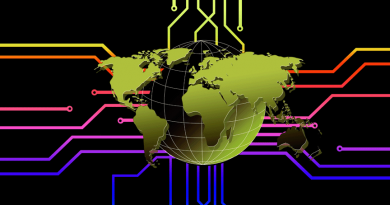Navigating international trade through economic turbulence
Dr Graham Bright is Head – Compliance & Operations, at Euro Exim Bank
As the logistics of trade become smoother and returning to pre-COVID levels, new threats are emerging, requiring all players in the trade ecosystem to take notice and act.
Political upheaval, wars, rising energy prices, raw material shortages and transport costs have compounded to make the past six months the most challenging, not only for major economies, but in emerging economies also. This is no longer an isolated issue, but a global situation.
International trade is complex enough, and the immediate problems and how these may be navigated can be categorised as follows.
Proximity
Buyers and sellers are geographically distanced, never meet, must establish trust, agree modes of operation, agree timelines for order placement and delivery and contend with high transport costs and risk.
There are few solutions to help here, although companies are actively seeking more local providers, or at least countries with closer borders or ports. The rising cost of import from some countries traditionally thought of as cheap, has led to buyers actively seeking out new markets, not only for closer product but with shorter transit times and a better view of all the players involved, through the lifecycle of transactions.
Language
With emerging markets and with many spoken languages, even though English may be the most common language in trade, as is the US Dollar for settlement of deals, documents must be translated and interpreted to ensure that the conditions required and goods you order are the goods received according to agreed contracts.
Just as SWIFT and the ISO collaborated to standardise the format and meaning of structured financial instructions, the international trade arena is yet to find a common language for proforma invoices, sales contracts etc as buyers will still require local language and nuances in each document for their purchases and contracts.
The top four languages spoken in the world are currently English, Mandarin, Hindi and Spanish, followed by Arabic and French. As a financial institution, to assist our clients with their local documents, we recommend authorised and certified translation services into English, still the most common language used in international trade.
Transport
Container prices have risen substantially, as has the fuel for trucks to physically transport them. Critical raw materials such as precious metals for batteries are also in short supply. This is further affected by the conflict in Ukraine, displacement of containers and rising general material costs including food.
With every crossborder transaction comes risk. Whether by road in countries with poor infrastructure to the high seas, where freak storms, piracy, loss or damage of cargo and even sinking are thankfully rare, these are still substantial risk events.
Whilst there is insurance available to cover such risks, there is the inevitable increase in cost.
With every crossborder transaction comes risk. Whether by road in countries with poor infrastructure to the high seas, where freak storms, piracy, loss or damage of cargo and even sinking are thankfully rare, these are still substantial risk events
Know your foreign customer
Do we really know enough about our customer 5000 miles away? With no direct relationship, the issue of identity, the critical requirements of means and intent to pay always arises.
Databases of financial information to assist in working out creditworthiness do exist, and are extensively used, however there is always a doubt on authenticity of paperwork, reputation of banks providing proof of funds and potential collusion between parties to defraud financial guarantors etc.
This is especially difficult in some emerging markets jurisdictions where there is no equivalent of a Companies House or official register, use of trusts to mask the true beneficial owners, shareholders and directors.
In trying to ascertain the true extent of credit risk, EEB use the additional network of agents and partners to meet the client, procure the financial statements and ensure collateral, trust and confidence are obtained. Our use of blockchain in ensuring the validity of documents and identity for KYC and compliance as golden records also assists in this area.
Trade restrictions
Whether to preserve home industries or prevent financial flight in low liquidity economies, all countries have customs duties on imports and suffer tariffs on exports. In addition to these restrictions, each country has its own regulations, which are changing frequently and usually in isolation.
Firms need to be aware of the International Chamber of Commerce recommendations, all geared around trying to standardise the way in which all players in the ecosystem are armed with the same information, details, rules agreements, conditions and contract terms to facilitate rapid, secure, electronically backed trade.
Documentation
We have talked about the complexity of rules, and documentation is no different. Trade documents have unstructured data, with the addition of Free Trade Agreements, many of the trade barriers are being swept away by the introduction of the Model Law on Electronic Transferable Records (MLETR) aimed to enable the legal use of electronic transferable records both domestically and across borders.
This model law is of critical importance, adopted by the United Nations Commission on International Trade Law allows the use of transferable documents and instruments in electronic form, such as bills of lading, warehouse receipts, bills of exchange, promissory notes and cheques. Importantly it allows title and possession to pass instead of waiting for paper documents.
This key piece of legislation, which will benefit all economies will allow merging of logistics and supply chains, and regulatory documents, in a single electronic transferable record.
Foreign markets
While we always think about KYC elements, knowing the market is also key to successful trade, especially as we deal in over 150 countries. Even if they are geographically close, each market is different, with their own customs, regulations, type of goods, consignees, middlemen, agents, weights and measures, minimum and maximum deal size, etc.
As a financial institution we analyse the goods, the market conditions, which instruments are acceptable, so understanding foreign markets is essential. Again, having people on the ground, well versed in how local commerce works, the local players, regulation and custom is vital to sustainability of healthy business.
Payment and liquidity
Apart from bad debt risk, companies in many economies are now constrained by the high value of the US dollar, costly and often prohibitive exchange rates vs local currency, lack of liquidity where local banks are unable or unwilling to support foreign transactions, and few payment channels supporting remittance to foreign countries on an exceptional basis, again attracting major fees.
In some cases we hear of charges being so punitive that small buyers are discouraged from buying from abroad and being disintermediated in international trade deals. To counter this, our institution assists clients by mitigating their risks and requirement for 110% of collateral required by major banks for the entire period of a trade.
Imagine you are a small SME wanting to import goods for 250K USD, but your bank demand you lock those funds in an escrow account for 1 year. This is clearly untenable for smaller clients as this effectively kills their cashflow, the lifeblood of business.
So, as one example of how we assist, we take a more proactive approach in charging fees for issuance of instruments, assigning title after receipt of full settlement at the end of the transaction. Their business is preserved, enabling them to remain competitive and to build more sustainable transactions. In conclusion, despite market fluctuations, FX pressure, liquidity, transport cost rises, identity, paperless digitised trading and regulatory pressures being as strong as ever, additionally influenced by geopolitical, environmental and governance issues, EEB remains ever vigilant, confident and well positioned to understand, and manage the constantly changing environment in which the world of trade finds itself tackling every day.




